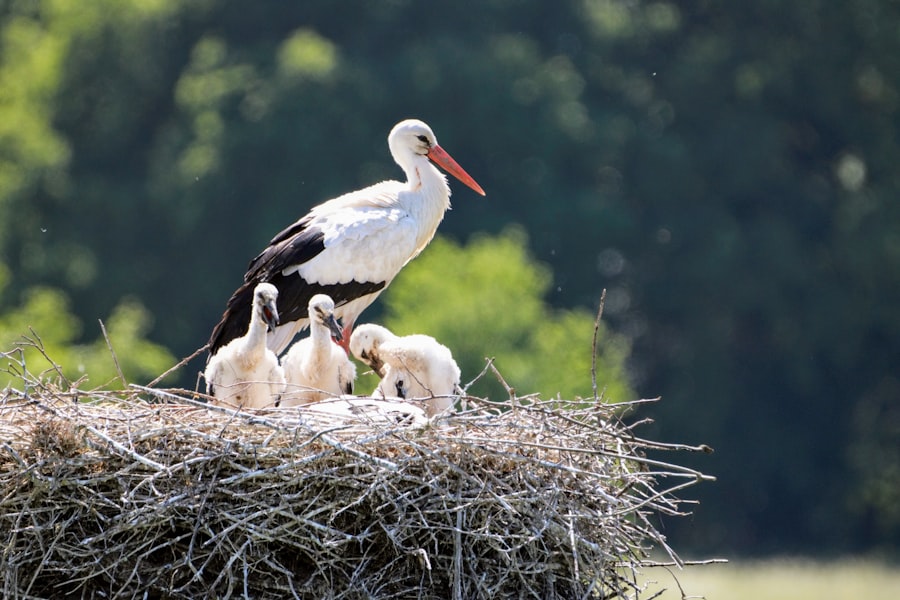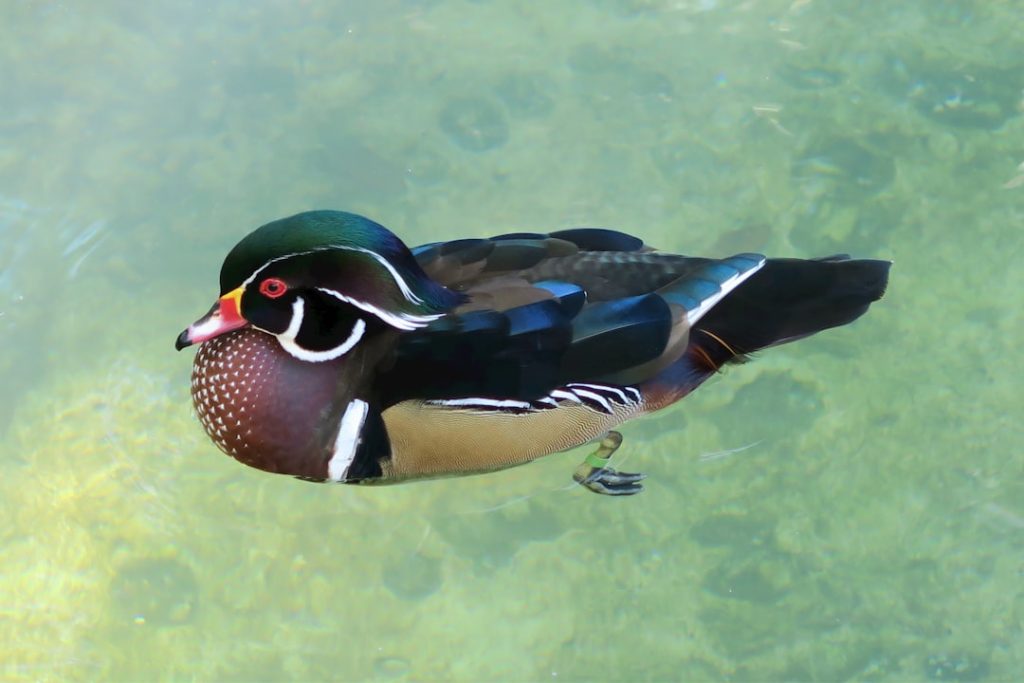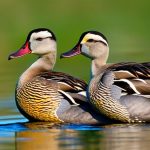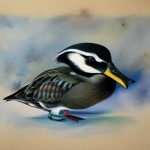Muscovy ducks are known for their unique appearance and behavior, and their breeding season is no exception. The breeding season for Muscovy ducks typically begins in late winter or early spring, and it is a time of increased activity and excitement for these birds. During this time, Muscovy ducks engage in a variety of behaviors, including courtship displays, mating rituals, and nest building. Breeding season is a crucial time for Muscovy ducks, as it is when they will produce the next generation of ducklings to carry on their species. Understanding the breeding season of Muscovy ducks is important for anyone who is interested in breeding these birds or simply observing their natural behaviors.
Table of Contents
- 1 Signs of Breeding Season in Muscovy Ducks
- 2 Nesting and Mating Behaviors of Muscovy Ducks
- 3 Importance of Proper Nutrition During Breeding Season
- 4 Caring for Muscovy Duck Eggs and Ducklings
- 5 Common Challenges and Solutions During Muscovy Duck Breeding Season
- 6 Conclusion and Tips for Successful Muscovy Duck Breeding
- 7 FAQs
Key Takeaways
- Muscovy ducks typically breed in the spring and early summer, with the breeding season lasting several months.
- Signs of breeding season in Muscovy ducks include increased vocalization, males displaying aggressive behavior, and females seeking out nesting sites.
- During the breeding season, Muscovy ducks exhibit nesting and mating behaviors such as building nests in secluded areas and engaging in courtship displays.
- Proper nutrition is crucial during the breeding season to ensure the health and fertility of Muscovy ducks, with a focus on providing a balanced diet rich in protein and essential nutrients.
- Caring for Muscovy duck eggs and ducklings involves providing a safe and warm nesting environment, ensuring proper incubation, and providing adequate nutrition for the ducklings once they hatch.
Signs of Breeding Season in Muscovy Ducks
There are several signs that indicate the onset of breeding season in Muscovy ducks. One of the most obvious signs is an increase in the birds’ activity levels and vocalizations. During breeding season, male Muscovy ducks may become more aggressive and territorial as they compete for the attention of females. They may also engage in elaborate courtship displays, such as head bobbing, wing flapping, and vocalizing. Female Muscovy ducks may also exhibit changes in behavior, such as becoming more vocal and spending more time near water sources. Another sign of breeding season is the formation of pairs or small groups of ducks, as they begin to establish territories and search for suitable nesting sites.
Nesting and Mating Behaviors of Muscovy Ducks
Nesting and mating behaviors are central to the breeding season of Muscovy ducks. Once a pair has formed, the male will often lead the female to potential nesting sites, such as hollow trees, brush piles, or other secluded areas near water. The female will then inspect these sites and choose one that she deems suitable for laying her eggs. Once a nesting site has been chosen, the female will begin to construct a nest using materials such as grass, leaves, and feathers. The male may assist in gathering materials or standing guard while the female builds the nest. Mating behaviors in Muscovy ducks are also an important part of the breeding season. Males will often perform elaborate courtship displays to attract females, including head bobbing, wing flapping, and vocalizations. Once a pair has formed, mating will occur, often in or near the chosen nesting site.
Importance of Proper Nutrition During Breeding Season
Proper nutrition is crucial for Muscovy ducks during the breeding season. As these birds expend a significant amount of energy engaging in courtship displays, mating rituals, and nest building, they require a diet that is high in protein and essential nutrients. A diet that is rich in protein will help to support the birds’ increased activity levels and provide them with the energy they need to successfully breed and raise their young. In addition to protein, Muscovy ducks also require a variety of vitamins and minerals to support their overall health and reproductive success. Providing a balanced diet that includes a mix of grains, seeds, fruits, vegetables, and protein sources such as insects or mealworms can help ensure that Muscovy ducks have the nutrition they need during the breeding season.
Caring for Muscovy Duck Eggs and Ducklings
Once Muscovy ducks have successfully mated and laid their eggs, it is important to provide them with proper care to ensure the health and survival of the eggs and ducklings. The female will typically lay a clutch of 8-15 eggs over a period of several days, and she will begin incubating them once the entire clutch has been laid. During this time, it is important to provide the nesting female with a quiet and secure environment to minimize disturbances and reduce stress. It is also important to provide the female with access to fresh water and a nutritious diet to support her during the incubation period. Once the eggs hatch, the ducklings will require care and protection from both parents. It is important to provide the ducklings with access to water for swimming and foraging, as well as a diet that is high in protein to support their growth and development.
Common Challenges and Solutions During Muscovy Duck Breeding Season

Breeding season can present a number of challenges for Muscovy duck breeders and enthusiasts. One common challenge is aggression between males as they compete for the attention of females. This aggression can lead to injuries or stress for the birds involved, so it is important to provide adequate space and resources to minimize competition and aggression. Another challenge during breeding season is predation on eggs and ducklings. Providing nesting sites that are secure and well-hidden can help reduce the risk of predation, as can providing the nesting female with a safe and quiet environment during incubation. Additionally, ensuring that Muscovy ducks have access to clean water sources and a nutritious diet can help support their overall health and reproductive success during breeding season.
Conclusion and Tips for Successful Muscovy Duck Breeding
In conclusion, the breeding season of Muscovy ducks is a time of increased activity and excitement for these unique birds. Understanding the signs of breeding season, nesting and mating behaviors, proper nutrition, caring for eggs and ducklings, and common challenges can help ensure successful breeding outcomes for Muscovy ducks. Providing adequate space, resources, and security for nesting sites can help minimize competition and aggression between males, as well as reduce the risk of predation on eggs and ducklings. Additionally, providing Muscovy ducks with a balanced diet that is high in protein and essential nutrients can support their overall health and reproductive success during breeding season. By understanding the needs of Muscovy ducks during breeding season and providing them with proper care and support, breeders and enthusiasts can help ensure the health and survival of these fascinating birds.
If you’re interested in learning more about muscovy duck breeding season, you might also want to check out this article on what to feed ducks. Understanding the dietary needs of ducks during the breeding season is crucial for their health and successful reproduction. This article provides valuable insights into the nutritional requirements of ducks, which can be particularly beneficial during the breeding period.
FAQs
What is the breeding season for Muscovy ducks?
The breeding season for Muscovy ducks typically occurs from late winter to early spring, with peak breeding activity occurring in February and March.
How do Muscovy ducks choose a mate?
Muscovy ducks are known to form monogamous pairs during the breeding season. Males will often display to attract females, and the pair will engage in courtship behaviors such as preening each other and vocalizing.
How many eggs do Muscovy ducks lay during the breeding season?
Muscovy ducks can lay anywhere from 8 to 16 eggs in a single clutch, with the average being around 12 eggs. The female will incubate the eggs for about 35 days before they hatch.
What is the nesting behavior of Muscovy ducks during the breeding season?
Muscovy ducks prefer to nest in tree cavities or other elevated locations, although they will also use ground-level nesting sites. The female will line the nest with down feathers and other soft materials to create a comfortable environment for her eggs.
How long does the breeding season last for Muscovy ducks?
The breeding season for Muscovy ducks typically lasts for a few months, with the peak of activity occurring in late winter and early spring. Once the breeding season is over, the ducks will focus on raising their young until they are independent.
Meet Walter, the feathered-friend fanatic of Florida! Nestled in the sunshine state, Walter struts through life with his feathered companions, clucking his way to happiness. With a coop that’s fancier than a five-star hotel, he’s the Don Juan of the chicken world. When he’s not teaching his hens to do the cha-cha, you’ll find him in a heated debate with his prized rooster, Sir Clucks-a-Lot. Walter’s poultry passion is no yolk; he’s the sunny-side-up guy you never knew you needed in your flock of friends!







